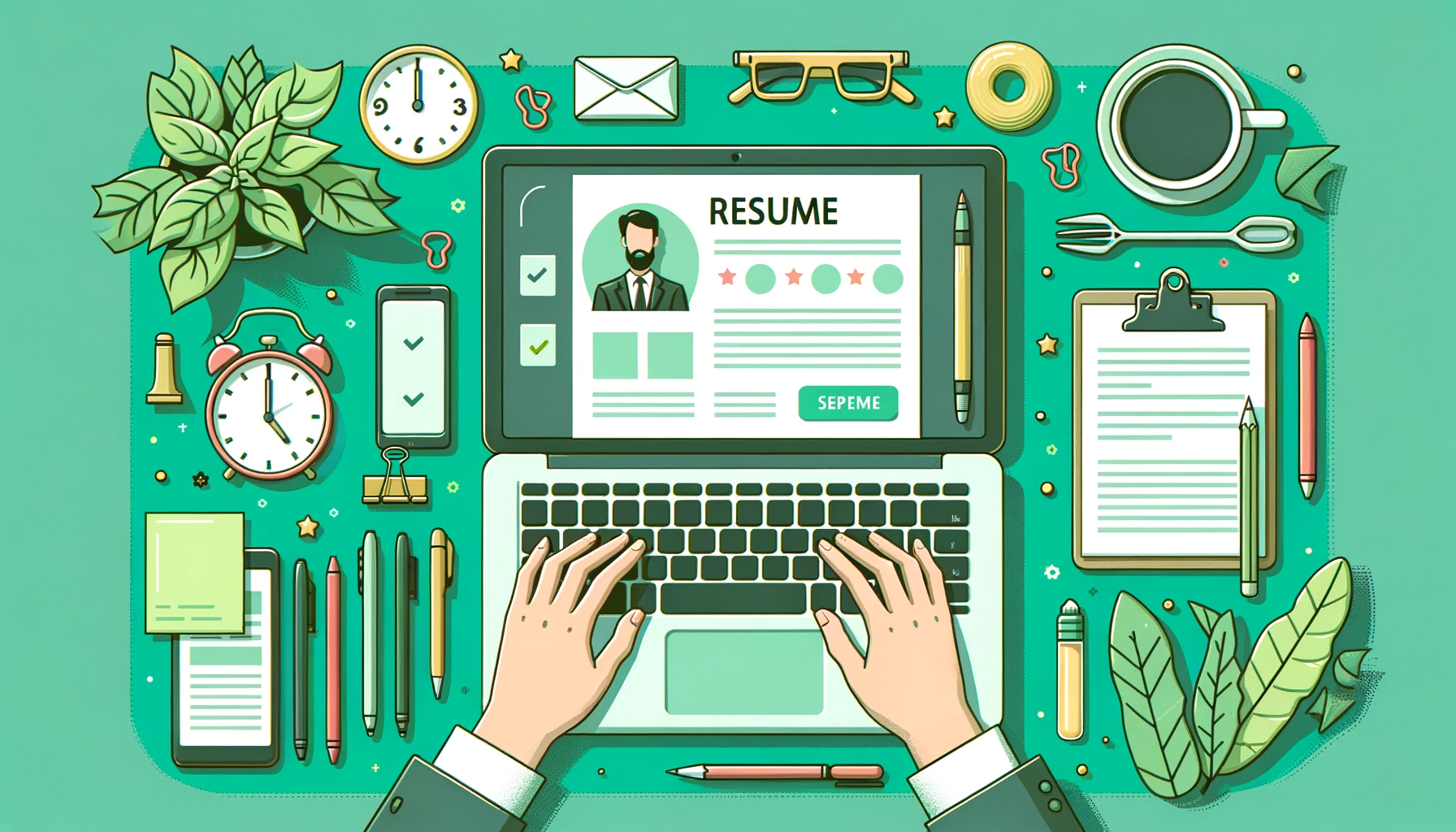How to Put Short Term Internships on a Resume?

Table of Contents
As new grads, what can you do if your resume lacks extensive experience? Can short-term internships be included as experience on your resume? And if so, how should you articulate this experience?
Next, I’ll tell you how to enrich your resume with short-term internships.
Firstly, a resume mainly includes the following sections:
Self-Evaluation (optional): Your self-assessment content.
Personal Information (required): Name, age, gender, phone number, email address, job intentions, etc.
Educational Background (required): Your full-time education and extracurricular training can be included here.
Campus Experience (required): Experience as a class cadre or in student union departments; if none, any campus experience that showcases your comprehensive qualities.
Project Experience (required): Work experience, internship experience, part-time job experience, etc.
Skills (optional): Work skills or specialties required for the position, such as design, photography, editing, programming, etc.
Awards & Certificates (optional): Certificates and awards obtained, such as CPA, interpreting certificates, etc.
Portfolio (according to job requirements): Previous works completed, such as articles, posters, planning, social media accounts, etc.
You can search for resume templates online, but be sure to avoid extremely fancy templates. The layout of the resume is usually clear, with unified colors, making it easy for others to read.

You can download a template from here “Resume Template”.
Secondly, you can package your resume according to the job description.
By analyzing the job description, you can understand what kind of employees the company needs, and then emphasize relevant parts in your resume, such as experience and skills.
Most new grads do not have very extensive internship experience, and the internship periods are relatively short. So, in this article, I share with new grads who have the same concerns, how to select the most valuable parts from limited experiences to show their advantages to HR.
What’s the Difference Between Project Experience and Internship Experience?
Project Experience:
Usually refers to specific projects you have participated in, which can be in school, community, volunteer organizations, or work environments. These projects may involve team collaboration or individual projects, with specific goals, tasks, and outcomes.
In a resume, project experience can highlight your teamwork, project management skills, problem-solving abilities, etc. The duration of project experience is relatively short, some even just a few days.
Internship Experience:
Refers to the work experience you gain in a specific company or organization, usually during or after your studies. Internship experience can be full-time or part-time, lasting for weeks or months, aiming to gain practical experience and understand the industry.
In a resume, internship experience can highlight your work experience in a specific field or industry, the professional knowledge and skills you have learned, and your performance in a workplace environment. In general, internships last relatively longer, with most lasting at least three months.
Tips for Content and Structure
#1 Simplify your contact information
Modern resume writers omit their physical street addresses on their resumes. The advent of email and telephone communication has largely eradicated the need to provide a recruiter with your physical address.
Applicants who are looking to relocate for a job often choose to include their current mailing address, but otherwise, it’s up to you whether or not to include an address.
#2 Include a compelling professional summary
A professional summary sits at the top of your resume beneath your header. Its purpose is to offer a recruiter a quick snapshot of your experience and qualifications.
A well-written professional summary must explain what you’ll bring to the table if you are hired. For example:

Summaries should be short — no longer than three to five sentences — and concise. The idea is to draw the reader in and make them feel compelled to read the rest of your resume.
#3 Tailor your skills section to the job
Always aim to incorporate the skills that are emphasized in the job description. Skills that are typically added to resumes include hard skills (like software or technical expertise) and soft skills (like communication skills or time management skills).
Including a bulleted list of relevant skills at the top of your resume allows recruiters to quickly see that you are a qualified candidate.
Carefully read the job description and list all of the skills, experience and educational requirements it calls for.
Next, add any of the qualifications you have to your resume using the exact language used in the job description.
If you are unsure about any improvements for this part, you can seek help on Jobright.

The Duration of the Experience is not the Focus of the Resume
For new grads, regardless of project experience or internship experience, the length of time is not the focus of scrutiny. What HR cares about is whether you have learned skills or knowledge that match the job description in these experiences.
For new grads, work experience in internships is difficult to meet the requirements of being a formal employee. For companies, reducing the cost of training employees is important.
The most important thing in job hunting is the match between the applicant and the recruitment position. Therefore, before writing a resume, we must first study the recruitment requirements of the target position and infer from those requirements what skills we need as applicants.
Combining the STAR expression principle, which stands for “Situation+Task+Action+Result”, reconstruct the situation at that time. The focus in this part is the description of the results, rather than the description of the background.
When describing the results, it is necessary to highlight personal contributions and the abilities and experiences gained.
Boost Your Job Application Success Rate, Starting from Your Resume! Introducing New Feature About Jobright.ai
Your ideal companion on your career journey. Our innovative platform offers you a fresh way to tailor your resume to best match the ideal positions you aspire to. With Jobright,you can effortlessly analyze your resume and make modifications based on the specific requirements of your target roles, thus standing out in the competitive job market. Don’t let your resume go unnoticed anymore! Experience Jobright.ai now and ensure your resume aligns perfectly with your target positions!

